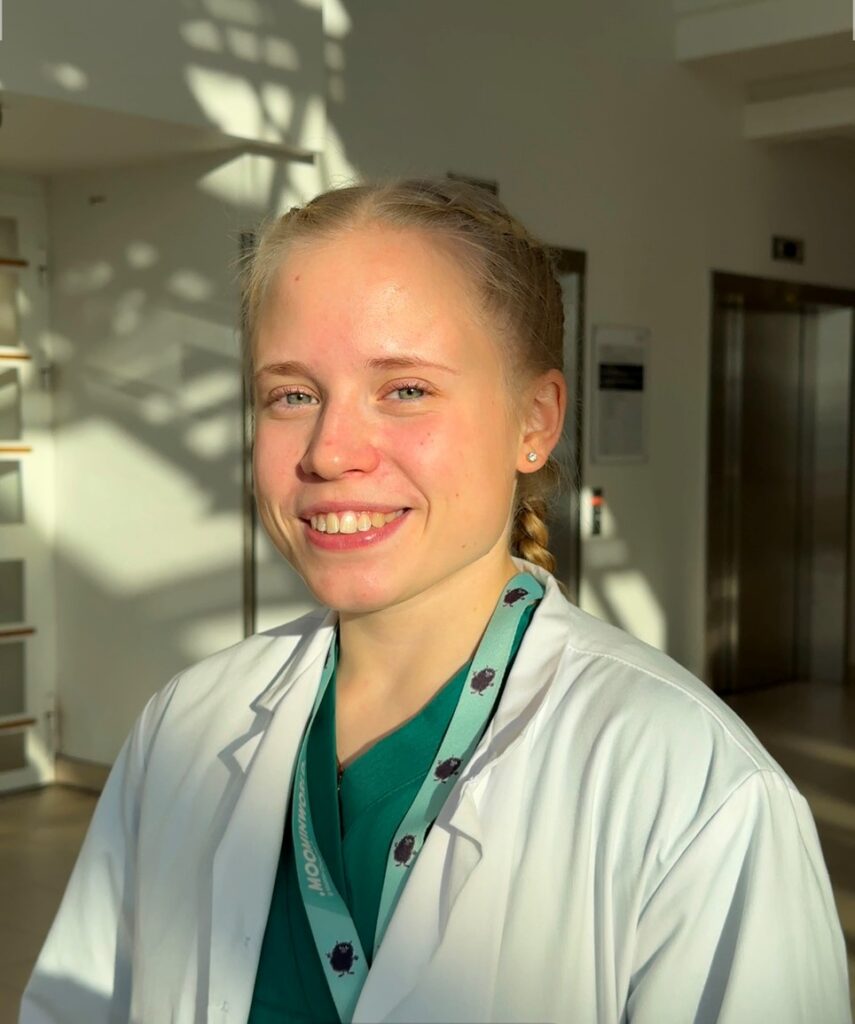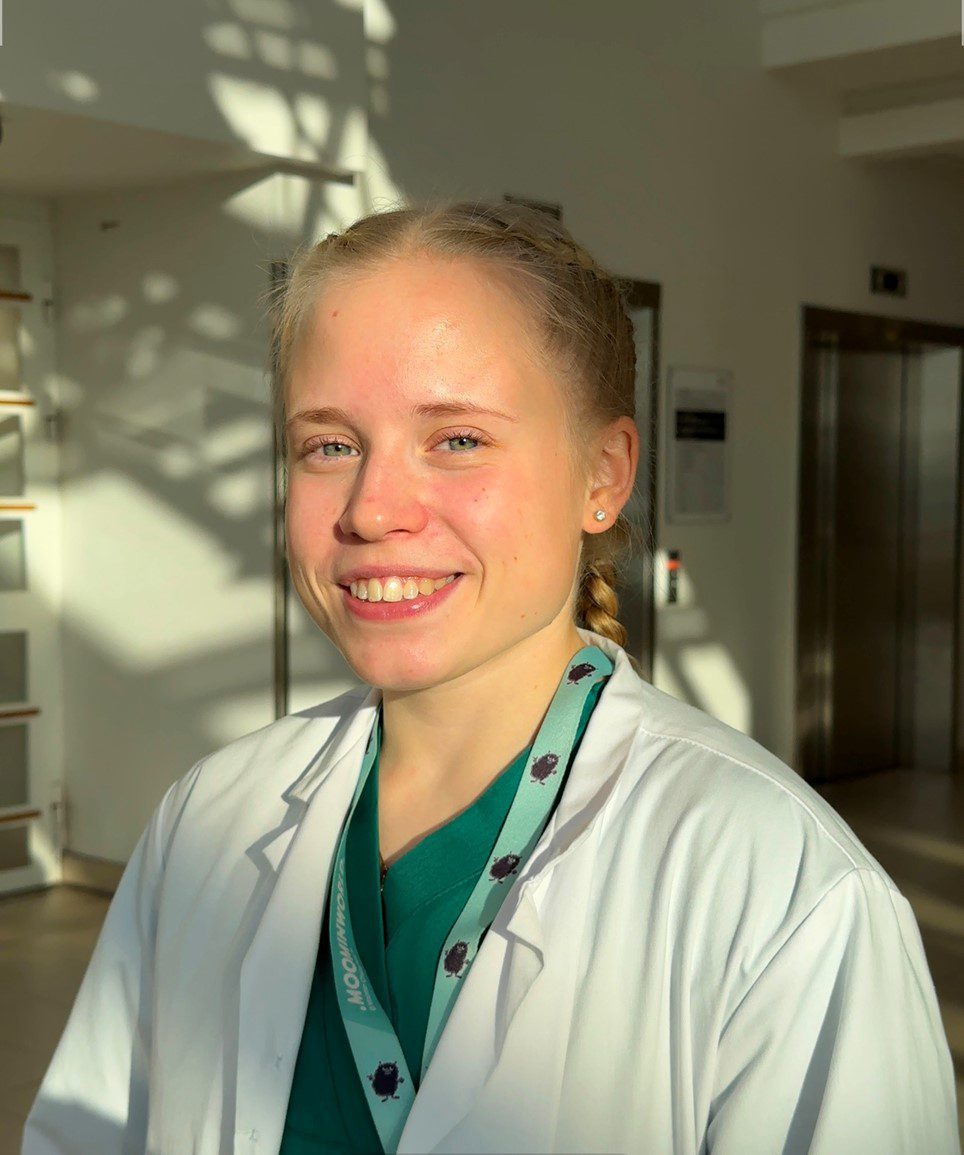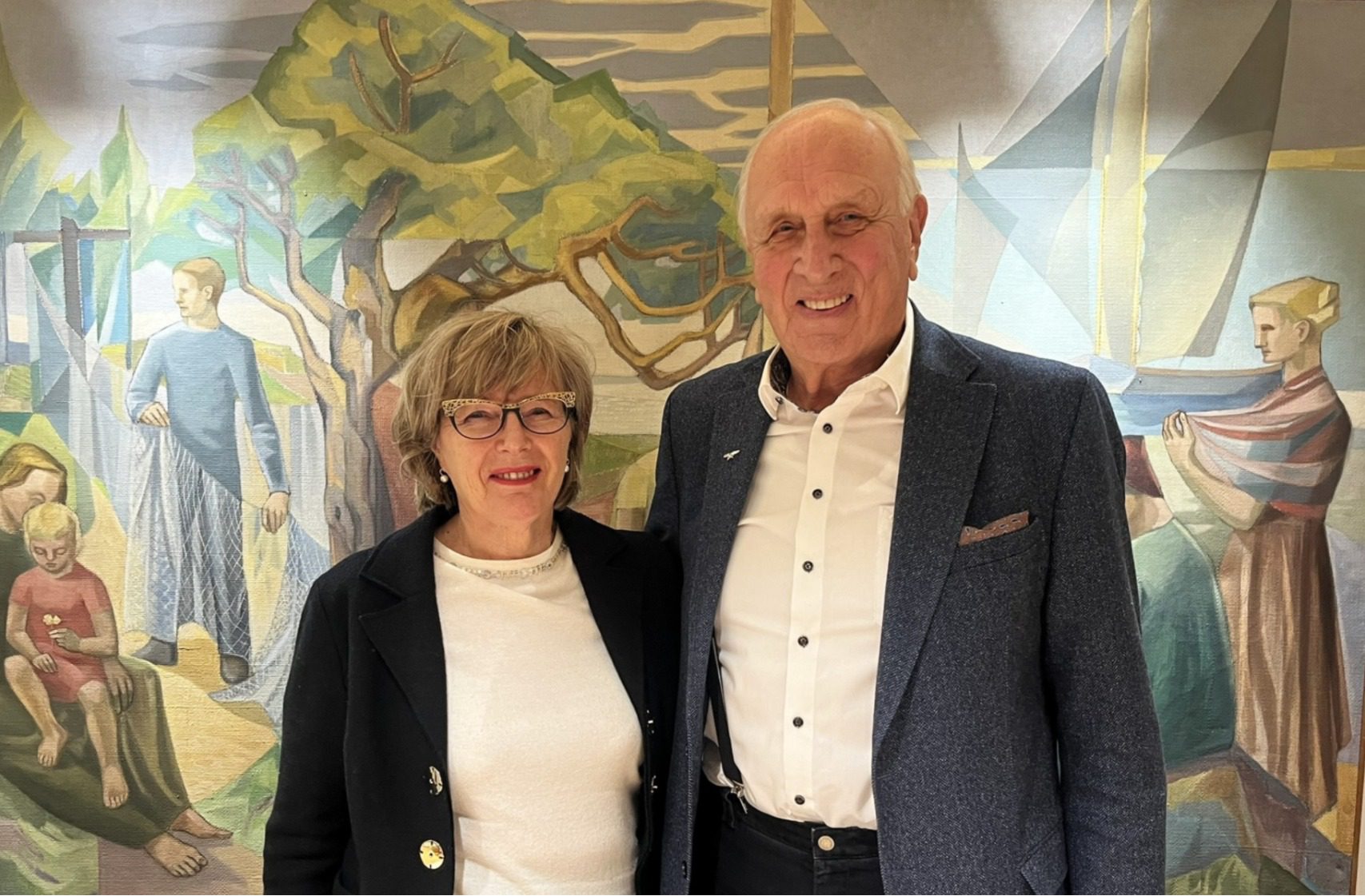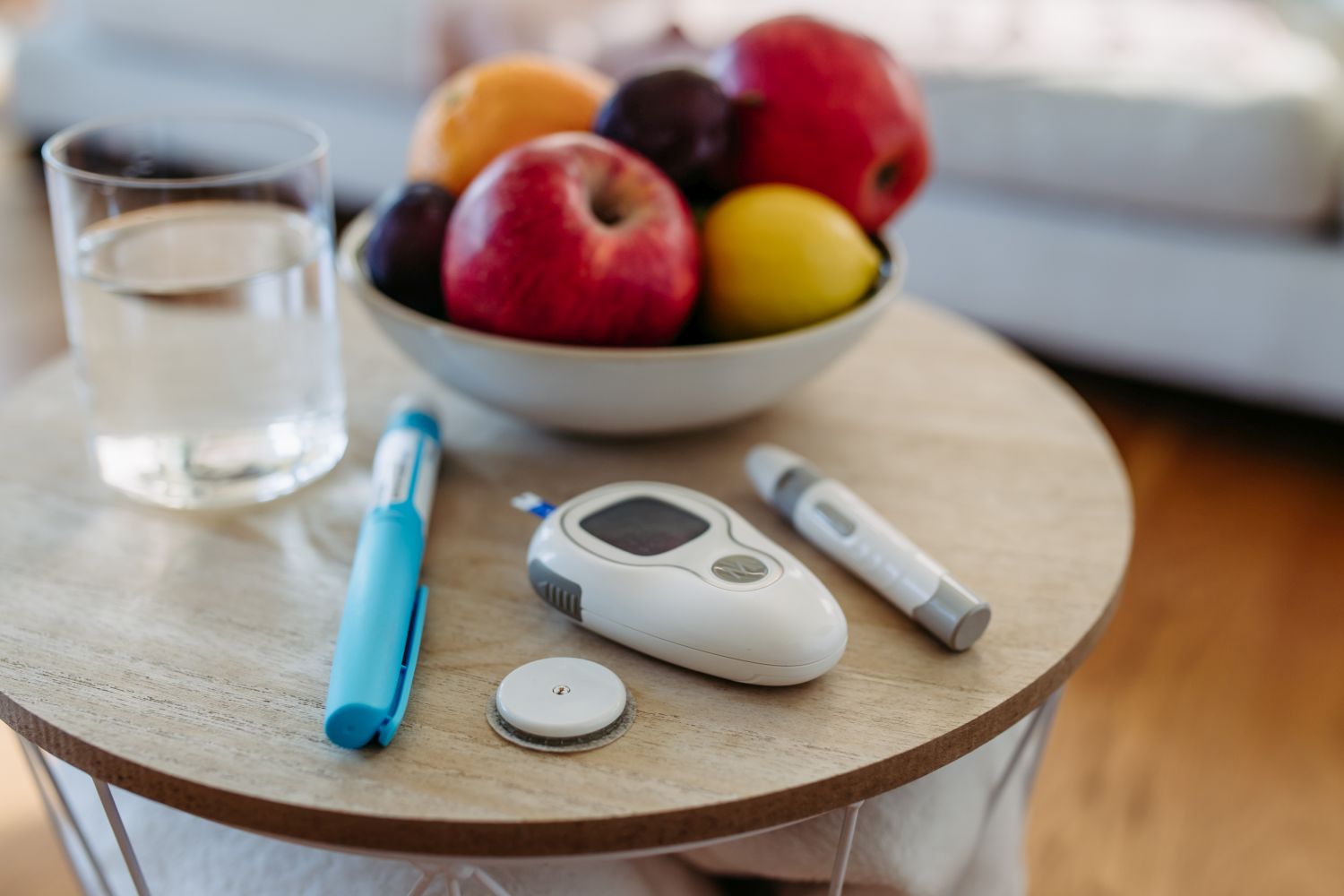Niina Viitaharju, a fifth-year medical student, spun her advanced studies topic on neonatal oxygen deficiency into a doctoral dissertation project. Since 2023, she has worked for a clinical research programme on the topic in Turku. At the moment, her Lic. Med. degree and part of her dissertation work is set to be completed by spring–summer 2026, after which she will focus on finalising her dissertation.
I became fascinated with paediatric medicine already at the start of my studies, and I discovered my advanced studies topic in Docent Vilhelmiina Parikka’s research group, which focused on investigating the mechanisms of hypoxic-ischemic brain damage in newborns. In addition to preclinical models, the research made use of clinical research designs.
I met Vilhelmiina, my supervisor, already in the spring of my first study year. Right away, I felt that her research topic was very interesting and significant. I also felt that Vilhelmiina was the kind of supervisor that I’d like to collaborate with. Although we only talked about an advanced studies-level project at the outset, we both soon felt that this project could be expanded into a doctoral dissertation.
My other dissertation supervisor is Kjell Helenius. As you may have guessed, our research group is quite small. For me, the most important point is having professional and experienced supervisors who are active and always there to provide support. We work really well together, and our group has a relaxed and open atmosphere. We plan and carry out conference trips together in our research group. My supervisors also have other doctoral researchers who are examining the same topic from slightly different angles. Throughout the year, we hold several joint meetings for the entire working group, where each researcher gets a turn to present their own project. These meetings are great for honing your public speaking skills while also learning more about each research topic.
It is important to invest in the health and development of children, as they represent the future – and they also have good recovery potential.
Oxygen deficiency during birth, i.e. birth asphyxia, can have major consequences for the child, as it can lead to serious injury or even death. Currently, cooling therapy is the only form of treatment in clinical use, and the development of babies born with asphyxia cannot be predicted to any great degree. It’s important that we study this topic so that, in the future, we can better predict how these children will develop later in life and how their care could be further developed to improve their prognosis.

Niina’s doctoral dissertation includes both local and national aspects.
My local dataset focuses on all children born with asphyxia who were treated at Tyks between 2010 and 2022, and it includes their birth data, laboratory results for the first five days, and all diagnoses until 2024. My national dataset includes all children born with asphyxia in Finland since 1987, and two controls for each child. This dataset is used to examine factors such as the prevalence and prognosis of birth asphyxia.
We’re now at a fairly good point, as we’ve collected both our local and national datasets, and we are at the final stages in the analyses of our first two subprojects. I plan to write two articles on my local dataset within a year, after which I’ll begin processing my national dataset. My goal is to complete my final subproject at around the same time as I’ll receive my Licentiate of Medicine degree in spring–summer 2026. After graduation, I’ll begin writing my dissertation summary between summer and autumn.
Tutkari is an important base for research
I like working at the TYKS Foundation’s Tutkari facilities on Sirkkalankatu, since it’s easier to concentrate there and work more efficiently. I also like working on a desktop computer with two monitors instead of using my small laptop. And, whenever I need help, I can always rely on the assistance of more experienced colleagues, as they’re often there as well. During my study periods, I usually dedicate 2–4 hours on my research work, and even more during the holidays, thanks to the funding provided by the TYKS Foundation.
Working on a dissertation alongside one’s medical studies requires planning and concentration, as no day is ever the same.
Medical studies take a lot of time, and there’s always a course that I need to be studying for. I try to plan for periods where I’ll have more time to focus on my research. Previously, I tried to focus on my studies and research at the same time, but these days I also try to invest in my leisure time and hobbies as well. I can be more efficient in my studies and research when I’m more alert, and I really believe in the importance of finding the right balance in my everyday life. I was involved in competitive figure skating for 15 years, and at the beginning of my medical studies, I felt like I had no time or energy for sports. Over the past year, I’ve dedicated a lot more time for sports and my other hobbies. My current routine is to have my study and research work done by around 5 p.m. I’m currently really into CrossFit, which means going to the gym for a couple of hours every evening after I’ve finished my work. I also have one off day a week that I dedicate to my hobbies and spending time with my friends and family.
I encourage all other young researchers to search for a suitable doctoral dissertation project at an early stage, if you’re interested in pursuing one. It’s particularly important to find a team that suits your personality and is flexible and trusting on both sides. When you’re in a great team, writing a doctoral dissertation can be a fun process, and you’ll also have time for your own pursuits. At this stage, my future career plans are still quite open, but right now, I’m thinking about working with children either in paediatric diseases or paediatric surgery.




